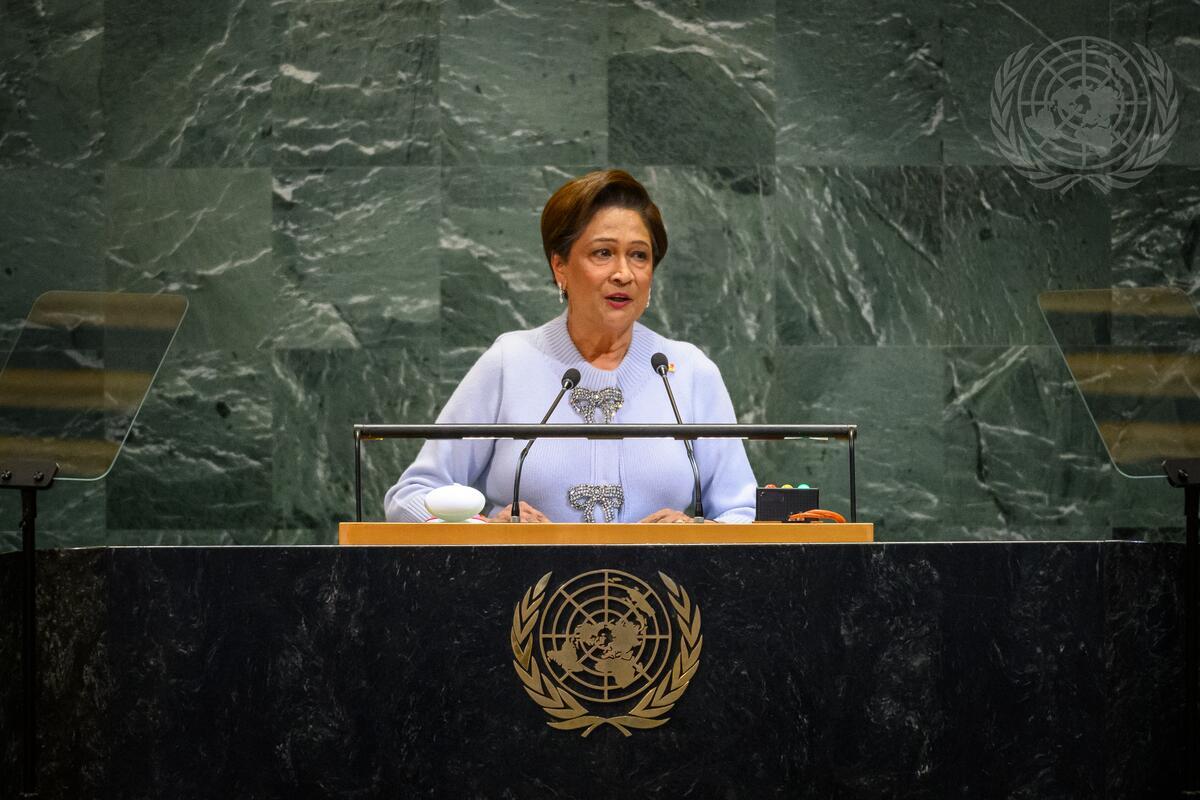In 1962, Dr. Eric Williams, the first Prime Minister of Trinidad and Tobago, famously declared ‘one from ten leaves nought’ as his nation withdrew from the West Indies Federation, marking a pivotal moment in the region’s history. Sixty-three years later, another Trinidadian leader, Prime Minister Kamla Persad-Bissessar, appears to be echoing this divisive sentiment. Her administration’s unwavering support for US-led militarization in the Caribbean has raised concerns about the future of regional unity and the Caribbean Community (CARICOM).
Last week, CARICOM leaders reaffirmed their commitment to maintaining the Caribbean as a ‘Zone of Peace,’ grounded in dialogue, diplomacy, and respect for sovereignty. However, Trinidad and Tobago notably ‘reserved its position,’ refusing to endorse the declaration. Persad-Bissessar has defended this stance, arguing that US military operations, including naval patrols and strikes—some of which have reportedly resulted in the deaths of Trinidadian citizens without due process—are essential to combat narco and human trafficking. She claims these actions will ultimately secure peace in the region.
This justification, however, stands in stark contrast to the principles of the ‘Zone of Peace,’ which emphasizes collective self-determination and non-militarization. By aligning with US military interests, Trinidad and Tobago risks undermining the moral contract that binds CARICOM nations together. This not only threatens regional integration but also jeopardizes critical economic and social lifelines, including trade, tourism, and food security.
Persad-Bissessar’s assertion that ‘every nation state in CARICOM has the right to exercise their sovereign rights as they think best’ echoes the narrow self-interest that led to the dissolution of the West Indies Federation in 1962. Her actions suggest that Trinidad and Tobago, buoyed by its mineral wealth and geopolitical leverage, is willing to prioritize its strategic interests over regional solidarity. This approach contrasts sharply with her predecessor, Dr. Keith Rowley, who emphasized the importance of sovereignty rooted in collective action and warned against aligning with US militarization, which he argued would endanger both Trinidad and Tobago’s sovereignty and CARICOM unity.
The erosion of the ‘Zone of Peace’ has far-reaching implications beyond geopolitics. The Caribbean’s blue economy, which relies on stability and predictability, is at risk as the region’s waters could be perceived as militarized zones rather than hubs of commerce. This could deter investment, disrupt fisheries and shipping, and harm tourism-dependent economies like Barbados and Saint Lucia. Moreover, a militarized Caribbean normalizes dependency on foreign powers, threatening to reduce CARICOM to a collection of vassal states.
At its core, this issue is not merely a foreign policy divergence but a test of Caribbean cooperation and the legacy of regional unity. The ‘Zone of Peace’ represents the political maturity the West Indies Federation never achieved—a commitment to shared sovereignty rather than its surrender. If Trinidad and Tobago abandons this principle, it risks reopening old wounds that could bleed into every trade negotiation, cultural accord, and regional emergency.
The Caribbean must decide how to confront crime, instability, and strife. Peace and diplomacy are not naïve ideals but strategic imperatives. History has shown that the region’s survival depends not on the strength of foreign empires but on the endurance of collective action. While the fragility of regional integration cannot be ignored, neither can its resilience. From CARIFTA to the CSME, from cricket to climate diplomacy, the Caribbean’s strength lies in unity. When one member aligns with zero-sum realpolitik, the delicate arithmetic of regional cooperation is threatened: one from fifteen leaves nought.
